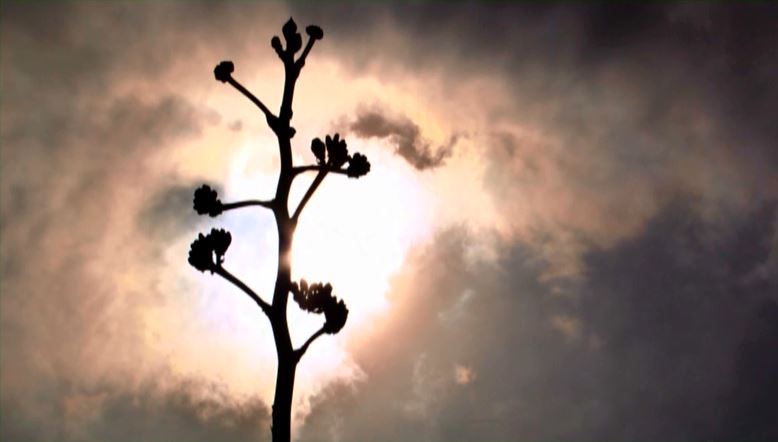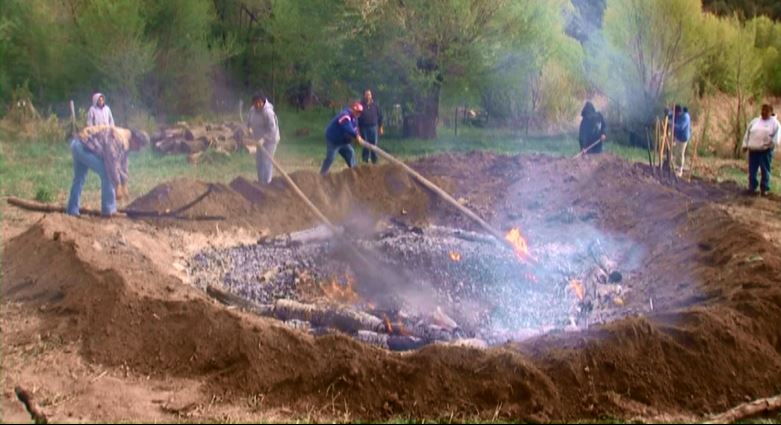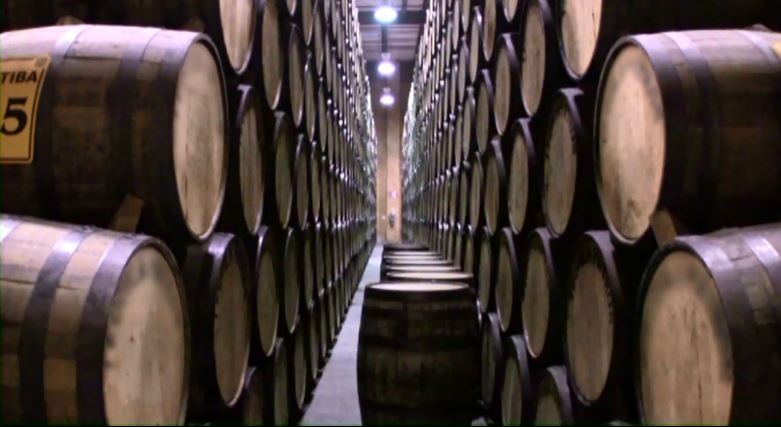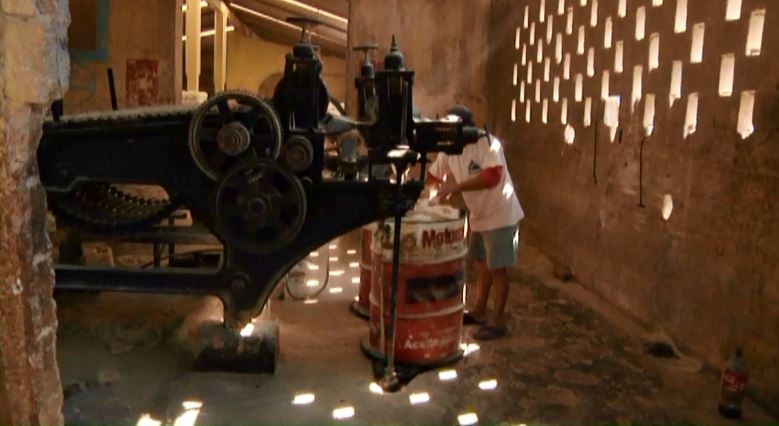Frame Of Mind Explores Agave’s Rich History
ArtandSeek.net September 16, 2016 38Texas archaeologists David Brown and Meredith Dreiss capture the wonderful story of agave and the people it sustains in their 2014 film, “Agave is Life.”
Agave’s history snakes back thousands of years, knitting the American Southwest to Mexico, even bridging the Atlantic to Spain and beyond.

The blooms of an agave plant. All photos: “Agave is Life.”
Brown and Dreiss’ met during the ’80s at the University of Texas in Austin. They worked on numerous projects together as UT students and liked each other so much they became romantic and creative partners.
But Brown’s interest in the plant began in the early ’90s, while studying archaeological sites around the Southwest. His team studied “agave ovens,” large pits where ancient cultures prepared harvested agave to eat and to use for sewing, baskets and jewelry. Brown began studying the culture around agave obsessively.

Mescalero Apaches still prepare agave ovens just as their ancestors taught.
Dreiss learned about agave in 2000, while working on a documentary, “Chocolate Pathway to the Gods.”
The two began “Agave is Life” in 2008, and it took six years to finish.
“The hard part was really stopping and realizing we had more than enough research for a one hour documentary,” says Brown.
“Even today we probably should have a bumper sticker on our car that says, ‘We brake for agave,’” says Dreiss.
Dreiss and Brown put together a comprehensive yet tightly focused documentary that gracefully spans large swaths of culture, geography and history.

Tequila exports have skyrocketed. Mexico Exports about 300 million liters per year.
The film’s goal is to connect human stories across generations and cultures to this incredible plant.
“From my perspective, I was just fascinated by the rich treasure trove of iconography and art work, legends and mythologies, that surround the plant,” says Dreiss.
She studies why some food items are ritualized and others are not,
“I’m interested in how a plant became so important to humans,” says Dreiss.
To tell this story, Brown and Dreiss traveled all over the Southwest and Mexico, talking to tribal leaders, agave textile makers, and mescal distillers.

A worker in an agave textile factory processing agave with late 18th century machinery.
One of the most awe-inspiring realizations they had was just how much of the world is connected through agave. The plant originated in the Americas; the Spanish brought it to Europe and the agave saga continues, its influence ever widening.










